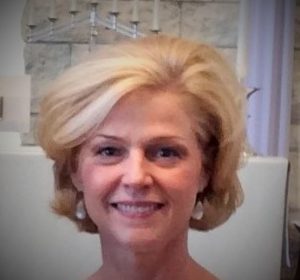If you think you are leading and turn around to see no one is following, then you are just taking a walk. —Benjamin Hooks
Each month I like to share tips for different things related to human resources. This month I’d like to share some leadership tips. Recently I was inspired by a speaker and organizational coach named Randy Anderson, who lives in Lubbock. His website is www.e3professionaltrainers.com and I recommend you check it out and sign up for his occasional emails.
Randy Anderson has 12 Rules for a Leader to Live by. 1. Never allow my problems to cause someone else problems; 2. Treat everyone as more important than myself; 3. Don’t dislike other people for the way they are; 4. Don’t compare my effort to someone else’s effort. Potential is not a relative factor; 5. Never miss an opportunity to make a positive difference in someone else’s life; 6. Don’t put things off, no matter how unimportant they may seem; 7. Make a habit of doing little things greatly; 8. Don’t allow my circumstance to dictate my disposition. My surroundings should not determine how I feel; 9. Hope for good for others; 10. Don’t ask others to do anything I wouldn’t do; 11. Do something every day to make myself better for tomorrow; and 12. Don’t quit a mess!
Great leaders need to be great communicators, role models, and coaches. Employees need to be accountable for implementing the goals of the organization. If they don’t understand the goals and do not have the skills and expertise to implement and execute them, the organization may ultimately fail.
Great leaders are excellent communicators. Stephen Covey said, Seek First to Understand. We come from different experiences and the leader needs to be able to listen to employees, so they feel heard and understood. Vice versa, a leader needs to clearly communicate his/her thoughts and ideas so that he/she will be understood.
Improve your communication skills and purchase the book The 5 Languages of Appreciation in the Workplace by Chapman and White. The premise behind the book is that people express and receive information in different ways. Sound familiar? Because Dr. Chapman first wrote The Five Languages of Love in 1992. The bottom line is that you need to express appreciation to others at work in ways that are meaningful to them. Those include expressing genuine appreciation, increasing loyalty, reducing cynicism to create a positive work environment, improving your own ability to show appreciation, and lastly conveying the language of physical touch in appropriate ways.
Leaders model the behaviors they expect to see in their employees, and they inspire teamwork to accomplish the goals of the organization. Do you remember the story about the geese flying in V formation? When the geese fly in formation, they create their own unique form of teamwork. By flying in the their “V” the whole flock adds at least 71 percent more flying range than if each bird flew on its own. Geese honk from behind to encourage those up front to keep up their speed. When a goose falls out of formation, it suddenly feels the drag and resistance of trying to go it alone and quickly gets back into formation to take advantage of the lifting power of the bird in front. When the lead goose gets tired, it rotates back in the ’V,’ and another goose flies point. When a goose gets sick, or is wounded and falls out of formation, two other geese fall out with their companion and follow it down to lend help and protection. They stay with the fallen goose until it is able to fly, or until it dies, and only then do they launch out on their own, or with another formation to catch up with the group.
If the leader is absent, the goals are still implemented because everyone knows their role and responsibilities and will work together to ensure the success of the company. The leader has trained, delegated, and stressed accountability over time to the point where getting the job done well is part of the culture of the organization.
Leaders need to be great coaches because if they are not, they will hold an entire team back from ever succeeding. Do you have a favorite team with excellent players and a coach that has held them back from greatness due to lack of leadership skills? When the game is lost and emotions are high, it is not the time to teach the players to be better. Humans learn when our mind is relaxed. There is significant brain research on the time for optimal learning and how your brain downshifts in stressful situations. Employees do not learn when they are upset or caught up in the moment of a brief failure. Humans learn after their brains have reset. Timing is everything.
Leaders hold their employees responsible for their performance. Performance reviews are worthless if done once a year. Reviews should be ongoing and saying “good job” is a worthless phrase. Do not lower your expectations about performance; model exemplary performance and expect the same from all your employees.
Life is a marathon, so get started.
______________________________________________________________________________________________________
“Your employees are the heart of your organization.” Dr. Michele Harmon is a Human Resource professional, supporting clients in Texas and New Mexico that range in size from five to more than 3,000 employees. She is also President of the Permian Basin Society of Human Resources. Email: micheleharmon1@gmail.com










